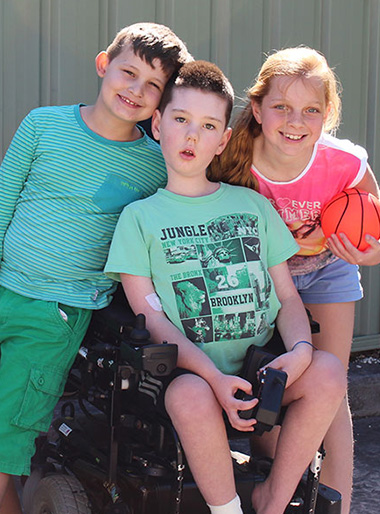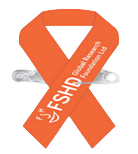KEY FACTS
FSHD or Facioscapulohumeral Dystrophy is named for those areas where muscle weakness is usually noticeable in patients. Facio (face), Scapula (back/shoulder), Humeral
(upper arm). However, many people experience weakness throughout the skeletal muscle system.
At the moment there are no treatments and no cure for FSHD.
FSHD receives no government funding for research in Australia.
FSHD Global Research Foundation is the largest funder of medical research into FSHD outside the USA government. For more information on FSHD Global Research
Foundation: https://fshdglobal.org/about-the-foundation
FSHD is one of the most common forms of Muscular Dystrophy
– FSHD affects 1 in every 7500 Australians – around 3000 people
– Estimated to affect around 1 million individuals globally.
– The actual number of people with FSHD is probably much higher because of misdiagnosis and a significant number of undiagnosed cases.
FSHD is hereditary – it is passed from parents to children
– Although about one in three people with FSHD have no prior family history of the disease.
The age of onset can range from infancy to late adulthood.
– Infantile FSHD can be very severe compared to the adult onset condition.
FSHD affects the skeletal muscles in the body.
– The extent and degree of muscle weakness is very variable.
– The progression of FSHD is highly variable. However, most people with FSHD develop noticeable muscle weakness by their 30s.
Please click the below links to download PDF files on the following topics:




